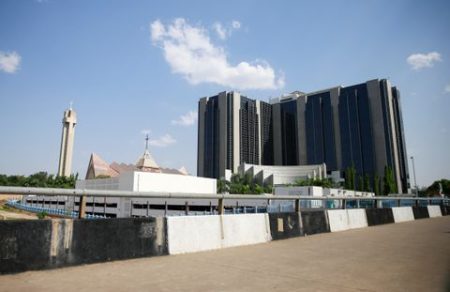 03 August 2013, Abeokuta – The power situation in Ogun State is not looking up, as businesses continue to collapse by the day. The few that manage to thrive virtualy feed on generators which increase production costs.
03 August 2013, Abeokuta – The power situation in Ogun State is not looking up, as businesses continue to collapse by the day. The few that manage to thrive virtualy feed on generators which increase production costs.
Naturally, it was lamentation galore when we sought the opinions of businessmen and women at major markets in Abeokuta, the state capital, following the failure of the Power Holding Company of Nigeria, PHCN, to restore electricity in most areas.
That notwithstanding, it was gathered that PHCN continues to issue outrageous monthly bills for services not rendered; while the businesspeople continue to pay for fear of being cut off from the grid.
To Mrs. Olaniyan Damilola who owns a beauty salon in Abeokuta, “Inadequate power supply is really disturbing our businesses in the area. Sometimes PHCN restores power at night and other times not at all.”
Abidemi Jibowo, a trader, tells the same story: “Power supply at Asiribo, Alowonle, Adigbe is not in proper condition and affects sales negatively. And when PHCN decides to restore power, it will either be too low or too high, eventually damaging our equipment. The government should find a lasting solution to the problem to ensure the smooth running of businesses in the area.”
He added that over the past one year, electricity supply had not been stable, but PHCN was in the habit of issuing outrageous bills for poor services. “A transformer was given to the area by government since October last year, but it is yet to be installed. If not for the vigilance of members of the community, some parts of the transformer or even everything would have been stolen. They should help the community connect the transformer to the grid to make it useful to residents. If they do that, the people will be proud of them.
Ayinla Rasak, a professional barber in Sapon, lamented that the power situation was crippling his business. “I spend N400 on petrol everyday, but how much do I realise daily? It is killing my business,” he said. Razak was joined by Dapo Kinyemi, a vulcaniser in Itoku market, who said the situation had constrained most of his colleagues to revert to the ‘Okada’ business which does not demand power.
”The power situation is not okay. I spend about N500 on petrol everyday. Something must be done to solve the problem,” urged Taofeek Akinleye, a fashion designer.
Finally, improvement long awaited in Anambra
There was jubilation in many parts of Awka, the Anambra State capital, following the sudden improvement in power supply around the area. For many years, consumers had been putting up with the usual load- shedding by the Power Holding Company of Nigeria, PHCN, which often came with fitful power supply.
A visit to some ongoing power projects in the state, showed that the positive development followed the installation of a new mobile 40MVA feeder line at Agu Awka, with two transformers that had undergone a successful test-run.
Checks also revealed that another 60MVA injection sub-station from the 132/33/KV which feeds the 2×7.5 MVA in Agu Awka was under construction and could be hooked to the national grid before the end of the year.
John Nweke, a hotelier, observed that the regular power supply was already making a positive impact on his business, as petrol purchase for power generators had considerably reduced, thereby improving the hotel’s revenue base.
“Since I commissioned this hotel in 2010, my greatest headache had been electricity supply. We took off with two giant generating sets that were consuming about N200,000 worth of gas every week. Sometimes we would borrow from our other business outfits to ensure the standard of this hotel was maintained, even when we were not breaking even. It was therefore a miracle that in the past one week, we had barely put on the generators and for once, our balance sheet showed some signs of positive change.
“Initially when I asked for the reason behind the improved electricity, some people told me PHCN workers were on strike over the Federal Government’s planned phase-out of the power company and therefore left the light on before starting the strike. It was much later that I learnt a new sub-station in Awka had started functioning. I pray it will continue like this so that all those depending on electricity for their businesses can heave a sigh of relief,” he said.
Likewise, Chief Emmanuel Nnaoba who manages a petrol station in Awka expressed satisfaction with the development, even though he admitted it would adversely affect his gas sales. He said the majority of his patrons were hoteliers, schools and internet operators, adding that he had noticed a decline in business over the past one week.
Nnaoba, however, admitted that steady
power supply was the wish of every Nigerian and urged stakeholders to ensure continual service delivery.
“In as much as I know improved power supply will negatively affect my business, I believe the development is good for our country because that is the only thing that can encourage investors. So much money goes into power supply, and this will reduce if public power supply works on a regular basis,” he quipped.
All talk, little action in Rivers
Lately, power supply in Rivers State has been witnessing a steady decline, giving Port Harcourt residents hard times and crippling their businesses.
At Rumuokuta, Rumuigbo, Rumuokoro, Rumuodara, Elohany, Eleka and other neighbouring communities in Obia Akpor, power conditions have worsened such that residents were forced to declare they would no longer pay their light bills.
At Rumuigbo, Juliet Kelechi who trades in frozen food said: “My business is collapsing. This area does not get electricity for days, sometimes over a month. Customers are complaining because I am unable to keep stocks frozen on generating set.”
Freeborn Wenodi, a drycleaner in the neighbourhood, noted that “commercial laundering has become entirely automated from washing, drying to ironing for anyone who wants to grow in the business. Without PHCN energy, it is extremely difficult to sustain oneself with alternative power sources.”
Ajah Sampson runs a popular hangout off Ada George Road. “How can the small, medium-scale investor grow in this country?”he queries. “A lot of youths are willing to engage in income-generating ventures like my bar and restaurant. You struggle to mop up cash to start something and government, with its failed infrastructure and repressive revenue, does not want the ordinary man to succeed. The business I run here is rewarding for the patient-minded. But power, the indispensible resource you need to keep it going, is not there. So you run on generator which triples your operating cost. That is why some people get frustrated and turn to crime.”
“I moved from Elohany. There you have power lines but it is a miracle getting steady power supply. We perpetually live on generators. At Ellios where we relocated to, it has been like heaven. Power is far from regular, but you are sure you will get supply from PHCN every other day,” disclosed one Emmanuel Aruya.
However, the majority of residents consider the Rivers situation strange because in recent times, the state government has committed huge funds to establishing its own power development infrastructure.
At the height of the agitation to transform Nigeria’s power sector to a deregulated industry, Rivers was a pacesetter among states establishing Independent Power Plants, IPP, and other major electricity infrastructure.
Ex-Governor Peter Odili set the ball rolling with a two-pronged strategy accorded N114.9 billion (representing 25% of total capital spending spanning his 8 years administration to the sector).
At his exit from office on May 29, 2007, Odili noted that “we had left in place a generating capacity of 381 Megawatts from 16 brand-new gas turbines and one refurbished inherited OMPADEC (Eleme) turbine. We also put in place civil works infrastructure to accommodate future expansion at the Omoku Power Plant.”
But current State Commissioner for Power, Augustine Wokocha, was not forthcoming with an update after repeated interview requests. However, between Odili’s foundation efforts and what currently obtains, the state statistics show government has shored up its megawatts to 560 and targets 750 megawatts.
– Vanguard



